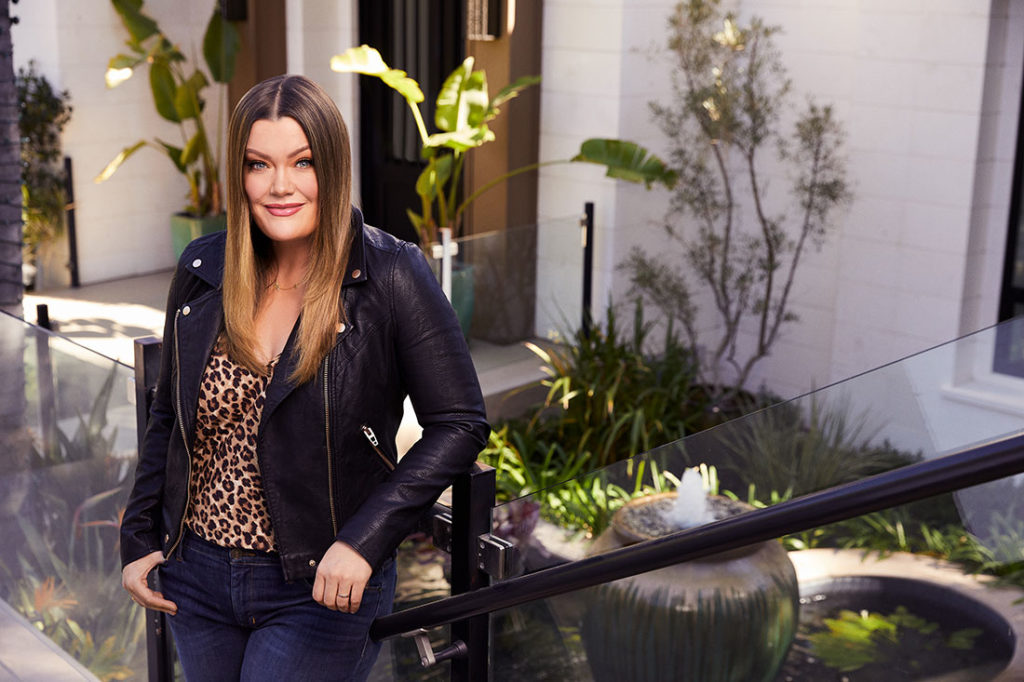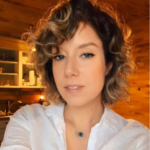Jamie Kern Lima pierces the lens with her blue eyes while angling her face toward the light. A photo assistant fans the entrepreneur with an enormous white bounce card and her long, brown hair wooshes to the sides like a model. Without missing a beat, she flashes a smile.
We’ve just passed the fifth and final outfit change during a lengthy day of shooting for her cover in Los Angeles. If one didn’t know about her backstory, they might imagine her fronting a fashion magazine, not one aimed at businesspeople, like SUCCESS.
She’s a natural in front of the camera. Her coral eyeshadow pops in contrast with her cobalt blue button-down blouse. She’s wearing dark ripped-knee skinny jeans, and platform tennis shoes covered in silver glitter with crisp white laces.
Kern Lima was crowned Miss Washington USA in 1999 and appeared on an episode of Baywatch that same year. Not long after, she was a houseguest on the first season of Big Brother. She worked as a morning news anchor, and then spent years on QVC touting her makeup line, IT Cosmetics—the line that was acquired by L’Oréal in 2016 for $1.2 billion dollars, landing her a spot on Forbes’ Richest Self-Made Women list.
The 43-year-old beauty industry mogul is no stranger to being in front of the lens. She’s poised—practiced, even—but not rigid. She was always meant to be on the cover of magazines, it would appear.
And yet. Less than a decade prior, she was an upstart entrepreneur just hoping to be noticed on social media, posting about her business to the @successmagazine account.
Maybe it was her destiny.
Maybe it was her determination.
***
Growing up, Kern Lima dreamed of becoming a daytime talk show host. She was raised by working parents and subsequently spent a great deal of time at home alone. During these times, she turned on her TV and flipped to Oprah for supervision. She idolized the talk show host. She viewed her as a friend and mentor who offered guidance through the screen. That is what she was going to do, she thought to herself. One day, she was going to be the host of her own talk show. So, she chased her dream.
Kern Lima graduated valedictorian from Washington State University, and in 2004 received an MBA from Columbia Business School in New York. In between studying and attending classes, she could be found slinging stacks of buttermilk pancakes and cheese-laden omelets while working as a waitress at Denny’s. After graduating from school, she landed a job as a TV news anchor. She was working a job she loved and was on the path to what she hoped would one day lead to her dream job until life intervened. In her late 20s, Kern Lima developed rosacea. She describes the skin condition, which causes red discoloration, as feeling like sandpaper on her cheeks. A visit to a dermatologist revealed an upsetting setback: There is no cure.
“I’d be anchoring the news live and I would hear in my earpiece from the producers: ‘There’s something on your face, you need to wipe it off!’ And I knew there was nothing I could wipe off. I knew it was the makeup breaking up.”
This prompted what Kern Lima refers to as “a season of self-doubt” as she started worrying about the condition causing her to lose viewers and then, consequently, her job.
“I kept having this problem live on the air. I tried every kind of makeup out there, from the types you find at the drugstores, to the professional artistry makeup, to the most expensive stuff in department stores. Nothing worked.”
This is when her lifelong dream of becoming a talk show host fell by the wayside and was replaced by something else—something so far-fetched and outside of the realm she operated in, but something she felt she was supposed to do. She was going to develop a makeup line for people with skin conditions like hers.
She knew nothing about the industry. She had no connections. She wasn’t familiar with the chemistry required for mixing formulas to make concealers and blush. She barely had any money. It didn’t make sense. But something in her gut, call it intuition, maybe, told her this was what she had to do.
“In our society, we’re taught so often to never quit and never give up. And I think that’s good advice if you know you’re on the path you’re supposed to be on,” she says. “But I also think that it’s just as important to know when to let go of a dream as it is to know when to go after one.”
***
Jamie Kern married Paulo Lima in 2007. The pair met in their statistics class during her first year of grad school at Columbia. Paulo, who was born in Brazil and raised in New York, has dark brown eyes. This is the first thing Jamie was drawn to. She says they sparkled. The second thing she was attracted to was his intellect. She says he had a kind of revenge-of-the-nerds vibe going for him. And this turned her on.
“When I met him, he owned one pair of jeans,” she says. “And he had a unibrow.”
A little while into dating, she took a pair of tweezers to his browline. This was, in a way, their collective introduction to the beauty industry. And then, facial hair notwithstanding, they fell in love. While finding a suitable partner to share one’s life with is something many people aspire to, as an ambitious woman with visions of personal success, she had her reservations.
In a new book, part memoir, part growth guide, she explains the mixed emotions she once held.
“Growing up, I’d seen so many examples in my life and in the world of women dimming their own lights to make men happy. Women subsidizing men at the expense of their own power and dreams,” she writes in Believe It: How to Go from Underestimated to Unstoppable.
But she didn’t have to rescind her dreams for love. “Paulo is my biggest champion,” she says. In fact, it was on a flight to South Africa for their honeymoon where the plans for IT Cosmetics took shape.
“We had a long flight,” she says. “And we just started writing. I knew I wanted to do this. And so, that was when it happened. We wrote the whole business plan on the plane.”
When the couple returned from their postnuptial getaway, they quit their jobs and dove headfirst into launching IT Cosmetics.
“I just thought that if we created a formula that’s going to work, then it was going to be huge. I didn’t realize that creating your product and believing in it is just Step 1 of having a shot at making it. And thankfully, because had I know that I probably would have somehow talked myself out of it.”
***
Creating a makeup formula was the first hurdle in building a brand. And Kern Lima didn’t know the first thing about the innerworkings of the beauty industry. She spent countless hours seeking answers on Google and attended various tradeshows where she met manufacturers and struggled to figure out how products are made.
“What I learned really quickly is that in the beauty industry, who your manufacturer is, is like your most closely held trade secret,” she says. “People won’t ever share who they manufacture with. Also, the more I researched, the more I learned about how important it is to be FDA compliant and to go through all the regulatory compliance and the clinical testing. There was all this stuff I didn’t know about.”
She set out to find a manufacturer in an FDA compliant lab with skilled chemists who were willing to be patient with her. It was also imperative that the manufacturer allow her to own her own formulas, something she says is uncommon. Since she hadn’t had any luck with leads, she walked into departments stores, Sephora, Ulta Beauty, anywhere that carries makeup, and became familiar with the brands they sold. And then, she took that list of beauty companies, which ran into the hundreds, sat on her living room floor, and called them.
“I asked whoever would answer the phone if they could recommend a really good manufacturer,” she says. She was turned away time after time but persevered until the day one woman at a beauty brand answered the phone and nonchalantly passed along what she knew. “She was super nice and told me the one they loved was based in New York. She gave me the name of one person, and I call him up and got a meeting. That was our very first manufacturer.”
***
Jamie and Paulo launched IT Cosmetics in 2008 out of their apartment living room in Studio City, California. The couple had little money—at one point their joint bank account teetered below $1,000. They were fueled by a diet consisting of $1 hot dogs from Costco and free samples from their neighborhood frozen yogurt shop.
They couldn’t afford to hire anybody, so Kern Lima tackled various roles. She used her middle name, which is Marie, to make an email address: [email protected]. Just like that, Marie became the head of PR for the brand. Marie hustled. She contacted magazines offering an interview with their founder and CEO Jamie Kern Lima. She reached out to Today, Good Morning America, The Early Show on CBS, and anybody else she could think of.
Most of the time Jamie Marie Kern Lima was ignored. But occasionally she heard back. She believed so deeply in what she was doing that she just kept going.
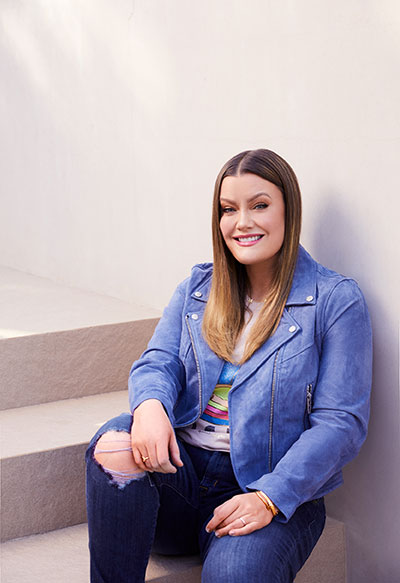
Her mission to make a product for every skin tone and age was met with resistance. Her ultimate goal was to shift the narrative in the beauty industry and create a luxury product for everybody, even people like herself, who struggle with skin conditions. She believes that all people deserve to feel beautiful. Ironically, this desire for inclusivity led to countless rejections and pushback from the industry, including some of the most painful rejections of her life.
“We got a call from a potential investor from a private equity company,” she says. IT Cosmetics was a couple of years old by this point. “I was so excited because this was a company that had invested in all of these consumer products that are household names. And so, when they loved our product, I thought it was going to be huge because if they invested in us, I wasn’t going to go bankrupt.”
She got to the due diligence phase of the process and was shown the product pipeline, budgets and projected sales. She was convinced this was her saving grace, the big break she’d been working toward. It would all come down to one last meeting.
She and Paulo met with the investor in person. “He said he wanted to congratulate me on everything I’m doing, and that they loved our product,” she says. “But it was a no. They were going to pass on investing in our company.”
She was used to hearing no, but she still wanted to know why. She wanted the feedback—seeing it as a gift, something to grow from.
“He said ‘Well, do you want me to be honest with you? Like really honest?’ And I said, yes please.” He stood there, a few feet away from the entrepreneur, looked her in the eyes and said: “I just don’t think women will buy makeup from someone who looks like you, with your body and your weight.”
***
She held her composure.
“In that moment, I wasn’t angry,” she says. “I wasn’t mad at him. I had a gut feeling that he’s wrong. I also knew I’d have to really, truly believe it for myself that he’s wrong if I was ever going be able to prove it.”
Kern Lima thanked him for his time, then went to her car and cried.
“I think it’s so important in business to never take rejection personally,” she says. “Don’t get me wrong, his words hurt. And I’ve worked really hard to not replay them over and over in my head for years. But it also reminded me that he’s passing on an investment because he is just as much impacted by the beauty industry as I am. He thinks you have to look a certain way to sell anything.”
She says the experience was “a blessing” as it helped further fuel her mission to shift the narrative and create an inclusive, luxury beauty brand.
Six years later, L’Oreal acquired IT Cosmetics for $1.2 billion in what would be the company’s largest U.S. acquisition of all time. The day the news was announced, Jamie received an email from that investor congratulating her on the deal. “He said he was wrong,” she says. “And that they would have been the most successful investment in his firm’s history had he said yes.”
But in retrospect, she views his rejection as something favorable.
“Had he said yes to investing in us that day, I was so desperate to not go out of business, I probably would have sold him the majority of the company for close to no money. Because he didn’t believe in us, and because we got rejected so many times, by the time we were acquired by L’Oréal, we were the largest shareholder. So, it was like the best grace, ever.”
***
IT Cosmetics started to break big in 2010, just as Jamie Kern Lima and her husband neared the point of giving up. Their ongoing efforts to land a coveted spot on QVC culminated in one pressure-packed 10-minute window. She appeared barefaced in a Before photo, then nervously showed live how the concealer covered her rosacea, as the phones began to ring off the hook.
In time, IT Cosmetics became the largest beauty brand on QVC. Kern Lima personally appeared on the network more than 1,000 times.
On July 22, 2016, news broke that IT Cosmetics had been purchased by L’Oréal. By this time, the business had long since relocated from the couple’s living room in California to a commercial space in Jersey City. Kern Lima recalls looking out her office window on the day the announcement was made and watching a helicopter swoop in and land roughly 50 yards from the building. Carol Hamilton, Group President of L’Oréal Luxe USA, descended from the chopper in a pink-and-white dress and white sunglasses and strolled, one designer heel in front of the other, toward the IT Cosmetics headquarters.
The celebration in the boardroom with her staff that day brought tears to Kern Lima’s eyes. But not the kind she had been used to shedding over her eight-year journey building the company. These were tears of joy. She had listened to her intuition, believed in her vision and herself, even when others didn’t. She worked relentlessly, and then, there she stood, with a glass of champagne in her hand and her husband by her side, having just become the first female CEO of a brand in L’Oréal’s history.
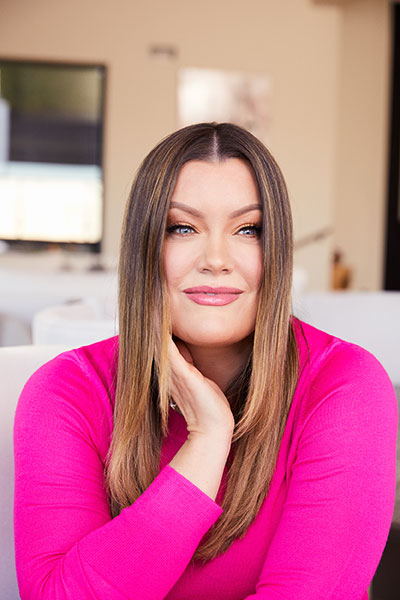
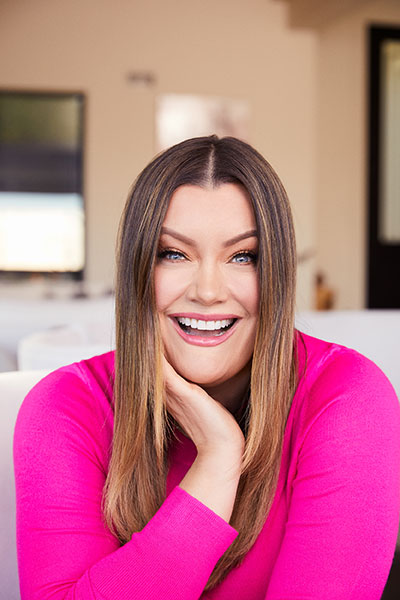
She and Paulo agreed to stay on and run the brand for three years after the acquisition. But then it was time to move on and find meaning in a new way. And so she wrote the book.
Kern Lima says that publishing Believe It is the most vulnerable thing she’s ever done. “This is the first time where it’s not a product I’m sharing, it’s my heart and soul,” she says. The pages delve into her childhood trauma, enormous dreams, seasons of low self-esteem, setbacks, triumphs, professional burnout, her inability to carry a baby to full-term, the overwhelming joy of finally becoming a mother of two, and her unwavering faith.
She says she wrote the book for anyone who’s ever been underestimated, and she hopes the pages, filled with these first-person accounts, inspire people to overcome their self-doubt and step into their purpose.
She now plans to focus her energy on serving others and strives to use her knowledge and connections to unite and empower other female entrepreneurs in order to bring them closer to achieving their dreams.
“The biggest thing that I’ve learned is that none of us are here to compete with anyone else,” she says. “I believe we’re here to compete with who God made us capable of becoming. And I know I’m not there yet.”
Listen to Jamie’s episode of SUCCESS Stories with Kindra Hall!
Photos by Christopher Patey



